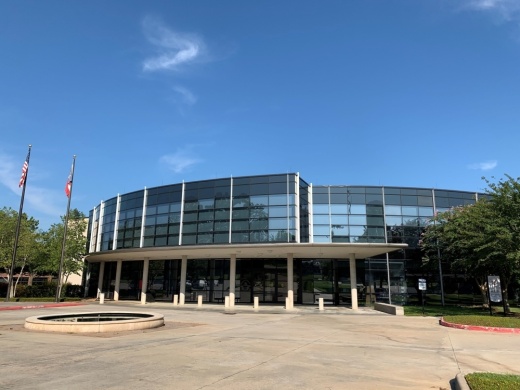The proposed program is possible because of House Bill 3348—passed during this year’s regular session of the Texas Legislature—which increases the total number of baccalaureate programs a community college can offer from three to five.
Valerie Jones, associate chancellor of academic affairs at LSCS, said the decision to add the emergency management degree program was based on the projected need for employees in the field for the next 10-20 years.
“We want to make sure that the programs for our students are aligned with future careers for them,” Jones said. “With this case ... we are in an area where emergency management spans into so many different areas, from flooding to hurricanes to fires and pandemics.”
LSCS currently offers three baccalaureate programs: Bachelor of Science in nursing; Bachelor of Applied Technology in cybersecurity; and Bachelor of Applied Science in energy, manufacturing and trades management.
Local Needs
Larry Smith, president of the board of commissioners for Montgomery County Emergency Services District 10 serving the Magnolia area, said the emergency management degree gives students a clear pathway into a career in this field.
“As a former teacher, I encouraged my students to always find what they wanted, and then get the certification and education they need to do that,” Smith said.
ESD 10 is in a transitional phase as the organization prepares to end its contract with the Magnolia Volunteer Fire Department, according to previous Community Impact Newspaper reporting. The transition will not change how the organization provides services but will cause current MVFD employees to become employees of the ESD, Smith said.
Smith said part of the transition includes hiring more staff so all of the ESD’s nine stations can be operational 24/7 to serve new residential and commercial growth.
ESD 10 Secretary and Treasurer Kelly Viollete said she believes the new degree program is going to be key for the organization as it prepares for future growth and tackles the problem of staffing.
“For residents to have a local pathway to get through that type of program and it be cost efficient is huge,” Violette said. “For us, it builds a pipeline of future qualified staff, so I think it’s amazing.”
Next Steps
Jones said LSCS is still in the proposal stage for the new baccalaureate program. Moving forward, LSCS will work to get approval from its board of trustees, then apply to the Texas Higher Education Coordinating Board before applying to the Commission on Colleges of the Southern Association of Colleges and Schools. Once all of the steps have been completed, Jones said the college is planning to launch the program in the spring semester of 2023.
“At each stage, we are demonstrating to our board of trustees, the state and our regional accreditors that we have thoroughly thought through this,” Jones said. “We are showing our graduates will have employment after this and our community has requested a need for this.”
Jones said the program is anticipated to operate in cohorts, beginning with a total of 30 students in the initial class before expanding up to 60 students the following fall.
“What we experienced with our first bachelor’s program was a much higher demand than we expected,” Jones said. “We are prepared for the same type of opportunity.”
As of August, Jones said it was too early to say which campus will host the program.
Additional reporting by Chandler France






